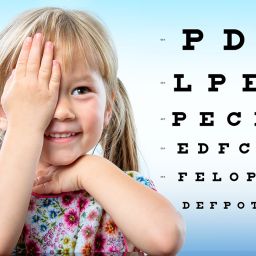Best Healthy Eye Habits For Kids
Most people, including parents and guardians, tend to forget about childhood eye health. It is easy to slip the mind since most eye disorders and complications don’t develop until teenage and early adulthood.
Still, healthy vision and eye health are important for all family members, even young kids. Therefore, you should teach a child the importance of proper eye care and health to avoid complications like injury and trauma.
Similarly, you can take multiple precautions to secure their vision and health. Regular visits to the doctor will help identify any problems with their vision and eye health.
The information below covers these points in detail. Therefore, keep scrolling to learn how you can encourage good healthy eye practices among young children.
Optimum Eye Health Habits For Kids
Parents and guardians can encourage kids to practice the following habits. They also outline some of the things you should ensure for your kids to prevent injury to the eye.
1. Avoid touching or rubbing the eyes.
Kids participate in many activities throughout the day. Unfortunately, they may not be the cleanest ones. It is common to find kids playing in the mud, dirt, and toys that have not been regularly disinfected.
Unfortunately, kids also forget to wash their hands and will touch various body parts, including the eyes. They will rub their eyes with their hands, leading to many problems. When kids rub their eyes, they transfer dirt from their hands to their eyes. It exposes the eyes to various bacteria, leading to infections and complications.
Therefore, teach your child not to rub or touch their eyes, especially when playing outside. Similarly, ensure they wash their hands thoroughly after playing.
2. Always wear protective gear during sports.
As your little one gets in touch with the activities they love, they may discover a fun sport like soccer, football, or tennis. Soon enough, you will sign them up for sporting activities and as you buy the gear, be sure to get protective eye gear.
Sports are fun, but your child could take a ball or puck to the face, specifically the eye. This could lead to multiple eye problems, including permanent damage. But it wouldn’t be fair to ask them to quit.
Instead, take precaution by getting safety goggles or glasses for their protection. Also, ensure they wear them during these activities.
3. Get adequate sleep.
Adequate sleep is necessary for general body health. Your child’s eyes need rest, so you have to ensure they get enough sleep to rejuvenate their eyes and body.
Without adequate sleep, your child will have red, irritated eyes. Similarly, they will struggle with focus and consistently rub their eyes, spreading germs and bacteria. Eventually, this could lead to infections.
Create a bedtime and napping schedule for your child. Ensure their room is optimum for sleep by making it dark and quiet. Finally, ensure they do not use phones or gadgets before bed.
4. Limit screen time.
Most adults by now know that sitting too close to the TV will not ruin your vision, not even among children. Still, it does not mean you should let your child have as much screen time as they want. Excessive screen time and sitting too close to the TV are still bad for the eyes.
It can lead to straining, difficulty focusing, and dry eyes among other discomforts. Therefore, ensure that you limit screen time for your child, especially before bed. You may even consider getting a protective screen guard to prevent too much exposure to blue light.
5. Play outside.
Doctors recommend playing outside over screen time in the house for better health. Children need to play outside to give their eyes a much-needed break from screens. Plus, exposure to the light helps their eyes adjust accordingly.
Some studies even show that playing outside reduces the risk of developing myopia. Let your child participate in outdoor activities outside of sports, such as going on scavenger hunts, flying kites, stargazing at night, or going for a picnic.
6. Participate in fun activities.
And if you are going to stay inside, ensure that your child participates in fun activities that will help your child improve their hand-eye coordination. The American Academy of Ophthalmology recommends various activists that will give your child’s eyes much needed rest from screens while stimulating the eyes with interesting exercises.
You can participate in making jewelry by string beads, painting, drawing, coloring, and even solving jigsaw puzzles with small pieces. They will encourage the child to focus and improve their coordination. A game of catch outside is also good for this.
7. Eat a balanced diet.
Ensure your child get sufficient nutrients to keep their eyes healthy and vision sharp. A poor diet can lead to health complications which may also affect the eyes. Therefore, ensure your child gets enough eye-healthy nutrients.
Find foods high in zinc, omega-3 fatty acids, vitamin E and C. Give your child healthy fruits like oranges and blueberries as snacks. Incorporate more green leafy vegetables like kale and spinach. Similarly, add more fish, beans, and nuts. Don’t forget the carrots!
8. Avoid carrying and using certain objects.
Teach your child the various dangerous objects they should avoid carrying and using unless under supervision. These include sharp objects like scissors and knives, spray paint and bottles, and toys with parts that you can propel.
This will prevent eye injury through accidents. As they grow older, teach the kids how to hold, carry, and use the object safely. This cultivates better habits they will see through to adulthood.
9. Go for regular eye checkups.
And finally, ensure your child goes for regular eye checkups even if your child presents no symptoms. It is always good to visit a trained and certified eye health professional for examination. The practitioner will let you know of any concerns. Additionally, they will advise against various habits while encouraging others.
Final Thought
As the parent or guardian, you need to ensure that your child follows these basic practices. It will ensure that they grow up without vision problems. Similarly, it will prevent injury and other avoidable trauma.



